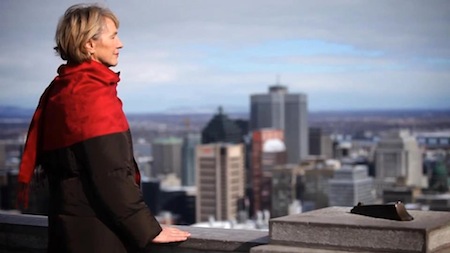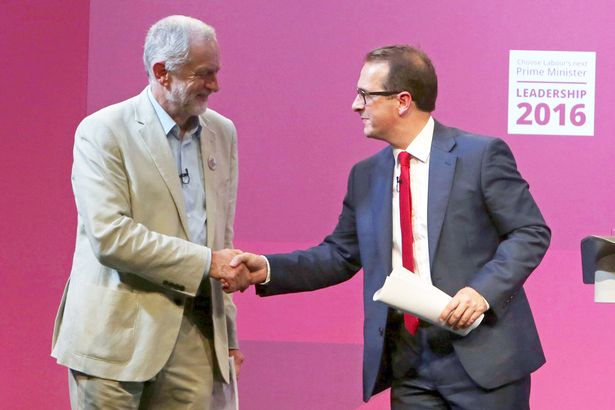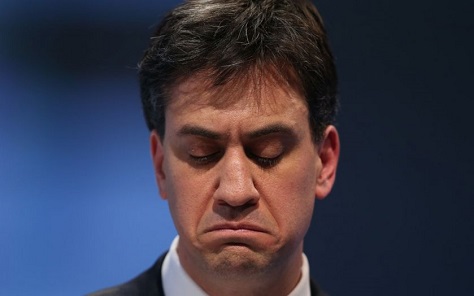
It’s a safe prediction that Joyce Murray will not be the next leader of the Liberal Party.
When the Liberal Party’s membership finishes voting and the winner is announced this Sunday, the winner is certainly going to be Justin Trudeau — and likely by a landslide margin. His anticipated election is already pushing the Grits ahead in polls, and not only against the official opposition, the New Democratic Party under Thomas Mulcair, but into contention for first place against the Conservatives under Stephen Harper.
It seems equally likely that the Liberals will get an even larger boost in the polls in the ‘Trudeau honeymoon,’ as the presumptive Liberal leader ascends to lead a party that governed Canada during 69 years of the 20th century — and which has seen its share of the vote fall in each of the past five elections.
Murray, who served as minister of water, land and air protection in the Liberal government of British Columbia premier Gordon Campbell in the early 2000s, lost her provincial seat in 2005 and reemerged as a Liberal MP from Vancouver in the House of Commons in the 2008 election. Since the withdrawal of MP Marc Garneau from the leadership race, however, Murray has been locked in a battle for second place with former Ontario MP Martha Hall Findlay.
The late momentum, however, lies with Murray, whose main campaign strategy has been a unite-the-left platform aimed at pulling together the Liberals, the New Democrats and the Greens together in an alliance for the next general election. Murray certainly has raised more money than any of the non-Trudeau hopefuls.
The fundamental fact of Canadian politics is that the broad left — from the most moderate business-friendly Liberals to the most ardently progressive New Democrats — remains split between two credible alternatives to the Conservatives. In many ways, it parallels the split between the old-guard Progressive Conservative Party and the upstart Reform Party / Canadian Alliance in the 1990s and early 2000s, which allowed Liberal prime ministers Jean Chrétien and Paul Martin to govern without much of an opposition from 1993 to 2004.
In the same way, the logic that propelled the conservative merger in 2003 augurs for a similar center-left alliance in 2013.
And the logic is tantalizing — in a country where MPs are determined in 308 first-past-the-post single member ridings, the Tories won a majority government in 2011 with less than 40% of the vote. A recent Léger poll shows the Conservatives with 31%, the Liberals ascending to 30%, the NDP with 24% and the Greens with 7%. Taken together, Murray’s dream coalition would trounce the Tories on a vote of 61% to 31%.
The problem is that unlike the PCs, which never won more than 15 seats in the House of Commons after their decimation following the 1980s governments of Brian Mulroney, and unlike Reform/Alliance, which never managed to extend its reach beyond western Canada, both the NDP and the Trudeau-era Liberals are national parties with long, proud histories in Canada that stretch back far into the prior century.
Trudeau himself has argued to the incompatibility of the Liberal and NDP traditions:
But this debate is less about electoral calculations than about Trudeau’s assessment of congenital incompatibilities on the left of the Canadian political spectrum. In an interview last year with Maclean’s, he contrasted the unification of the right, as accomplished by Harper in 2003, and the notion of symmetrical coming together of Canadian progressives.
“The right didn’t unite so much as reunite,” Trudeau said. “I mean, Reform was very much a western movement breaking away from Brian Mulroney. But they broke away, then they came back together. The NDP and the Liberals come from very, very, very different traditions.”
But that overstates the case — keep in mind that the most successful leader the Liberals have had in the past decade, the current interim leader Bob Rae, is the former NDP premier of Ontario. Mulcair, the current NDP leader, was a member of the Québec Liberal Party during his career in provincial politics. Though it’s important to keep in mind that provincial parties aren’t affiliated with national parties, it’s fair to say that there’s a significant amount of cross-pollination between the two traditions.
Even beyond her controversial support for a broad center-left alliance, however, the center of gravity in Canada is moving in two directions — both westward in the geographic sense and toward a more globalized, diverse, immigrant-rich Canada in a demographic sense — and British Columbia (and Vancouver) is obviously at the heart of both of those trends. Continue reading Despite Trudeaumania, Joyce Murray personifies the future of Canada’s center-left →

![]()


